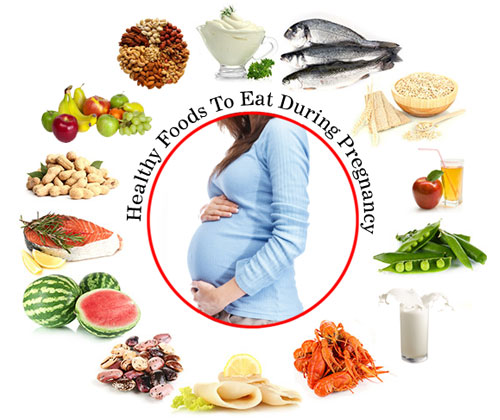
Source: peaandthepodchiropractic.com
“I went through a miscarriage two years ago, and now that I am pregnant, I want to make sure my unborn baby’s fate now wouldn’t end up in another one. I want to make sure my baby thrives inside my womb. How can I make sure of that?”
This article tackles four crucial things to keep in mind to ensure your baby’s health as he or she grows inside you.
Yes, the long wait is over! Finally, the pregnancy test kit you bought showed a plus sign (or two pink lines), which means positive – you now have a baby on the way. But moms, you have to remember that while pregnancy is a success in itself, a lot – including negative things – could happen between conceptions and baby deliveries.
For one, an unhealthy pregnancy could end up in a miscarriage. Secondly, a sickly baby inside the womb could result in complications later on and in the child’s life as he or she grows up. So, ensuring that your growing bundle of joy is hale and hearty starts right down inside the mother’s tummy.
How could we make sure we’re growing healthy babies inside our wombs? Here are the four things we need to be aware of.
- Make Sure You Have Prenatal Care
Prenatal care is defined as preventative healthcare that aims to prevent and correct potential health problems you and your baby might have along the course of pregnancy as well as to promote a healthy lifestyle that will benefit both of you.
The health and well-being of pregnant women and girls, and that of their developing babies over their life spans can be supported by the creation of sanctuary—a place or environment of refuge and protection in which they experience safety. — Ann Diamond Weinstein Ph.D.
Antenatal care is advised as soon as you know or suspect you’re pregnant. On your first checkup, your OB-Gyne will determine your estimated due date based on the data you give him or her. Then a monthly check-up will follow for 2 to 6 months. Your doctor will regularly monitor your baby’s heartbeat, the weight you’re gaining and your blood pressure. In the last two months of your gestation, you’ll be required to come once every two weeks then weekly.
Make sure that you take the prenatal vitamins your doctor gives or recommends as these are for your baby’s health as well. And you can check in even before your appointment if you get sick or before taking over-the-counter medications for common illnesses like cough and colds.

Source: whattoexpect.com
The most commonly craved foods are those that are both appealing and “forbidden.” Ironically, efforts to avoid foods that cause conflicting feelings have the paradoxical effect of increasing craving and consumption, often resulting in overeating or binge eating of those foods. — Alexis Conason Psy.D.
- Eat The Right Kinds Of Food
You get weird cravings when you’re pregnant, but it’s not necessary that you give in to them. Remember, the kind of food you put inside your mouth has a direct effect on the growth of your unborn baby. The nutrients vital for your unborn baby’s growth and development are:
- – Iron
- – Folate
- – Iodine
- – Zinc
- – Calcium
- – Vitamins C and D
While you can get these nutrients from your prenatal vitamins, make sure you also get them from the foods you eat. So, stock up on your go, grow and glow foods.

Source: womenpla.net
- Get Enough Exercise
Pregnancy is not an excuse to lounge around the house lazily unless your doctor tells you otherwise. In fact, research shows (and supported by the American Pregnancy Association) that exercise reduces your risks of having complications come delivery time and shortens labor. You can ask your healthcare provider for workout regimens suited for pregnant women.
…data from the CDC notes: prenatal exposure to smoking is associated with disruptive behavioral disorders in children, including ADHD, ODD, and CD. — Erlanger A. Turner Ph.D.
- Know What To Avoid
You have to know what to avoid to make sure the growth and development of your unborn baby is healthy.
Substance abuse like using drugs, alcoholism, and smoking puts the little one inside your tummy at risk of developing congenital disabilities, and severe health complications come delivery time and onwards. Eating unpasteurized products like soft cheeses and raw or not-well cooked eggs and meat makes you a candidate for a miscarriage as they could contain dangerous bacteria like listeria and salmonella. You also need to avoid eating certain kinds of fish like swordfish, king mackerel and shark as their meats contain high concentrations of mercury. You also need to limit your caffeine intake are prohibited to drink herbal teas unless you consult with your doctor first.
Your child solely depends on you, the mother, from conception to the first five years of his or her life. Establish healthy habits to ensure your baby’s health inside your womb and practice healthy living to teach your child through example how good and fulfilling life is if lived well health-wise.
